2025 PROGRAM AGENDA
8:30 - 9:00 AM - Registration and coffee
9:00 - 9:10 AM - Welcome remarks
9:10 - 9:30 AM - Keynote presentation: Tom Daniel, MD
Bridging discovery and venture: Academia reshaping industry
Learn More + -

Tom Daniel, MD
Throughout a multifaceted career, Tom has helped advance healthcare as a physician, researcher, educator and business leader. He brings more than 20 years of experience leading and building research and development organizations and leading investments in new companies at the forefront of innovative application of science to healthcare.
9:30 - 10:10 AM - Panel discussion: Strategic collaboration to accelerate innovation
Phil Baran, PhD | Phil Dawson, PhD | Chris Bi, PhD | Martin Eastgate | Monica Fitzgerald, PhD | Keary Engle, PhD (moderator)
Learn More + -
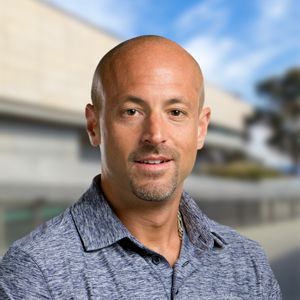
Phil Baran, PhD
Professor and Dr. Richard A. Lerner Endowed Chair
Department of Chemistry
Scripps Research
Phil Baran is a professor and Dr. Richard A. Lerner Endowed Chair in the Department of Chemistry at Scripps Research. He joined the institute in 2003, following his role as an NIH Postdoctoral Fellow at Harvard University under Nobel laureate Professor E.J. Corey.
An alumnus of the Scripps Research graduate school, Baran has a special connection to this doctoral program and, now as a faculty member, has been heavily involved in mentoring the next generation of scientists. He was the 151st student to enroll in the program back in 1997. Fast forward to today, Baran has taught more than 25 courses as a course director and served as a presenter more than 120 times in other courses.
Baran’s dedication to Scripps Research—more specifically, the graduate program—has served as an inspiration to others. Since 2004, he has been a thesis advisor to 66 graduate students, and two former students (Ryan Shenvi, PhD, and Hans Renata, PhD) later joined the Scripps Research faculty. He has also served as a committee member for 134 other graduate students.
Throughout his career, Baran has authored hundreds of publications (cited over 40,000 times), earned several patents, co-founded several successful biotech companies, and received numerous professional awards, including the ACS Elias J. Corey Award, 2013 MacArthur Fellowship and Blavatnik National Laureate in Chemistry Award. He is an elected member of the National Academy of Sciences, the American Academy of Arts and Sciences and a Fellow of the Royal Society of Chemistry. He received his bachelor’s degree in chemistry from New York University.
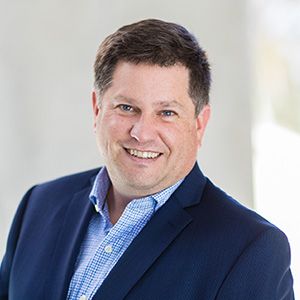
Phil Dawson, PhD
Professor
Department of Chemistry
Scripps Research
Phil Dawson is the chair of the Graduate School Advisory Committee (GAC) at Scripps Research and a professor in the Department of Chemistry. As GAC chair, he provides guidance and support for the Skaggs Graduate School of Chemical and Biological Sciences, a program consistently ranked among the top 10 in the nation. Previously, Dawson served as dean of the Skaggs Graduate School.
Dawson’s research focuses on the development of synthetic tools for the chemical synthesis of proteins and bioconjugation. For his accomplishments in this field, he has received the Alfred P. Sloan Foundation Fellowship, the Vincent du Vigneaud Award from the American Peptide Society, the Max Bergmann Gold Medal for outstanding contributions in peptide chemistry and the Leonidas Zervas Award from the European Peptide Society.
He has served on the advisory boards of numerous journals, companies and international conferences. Additional contributions have been made as a member of the board of directors for the Federation of American Societies for Experimental Biology and as the president of the American Peptide Society. His studies have been reported in more than 150 peer-reviewed publications.
Dawson earned his doctorate at the institute’s graduate program in 1996, following his bachelor's degree in chemistry from Washington University in St. Louis. He pursued postdoctoral work at the California Institute of Technology before returning to Scripps Research as an assistant professor. In 2011, he served on the Dean’s Advisory Committee and in 2012, became associate dean of Graduate Studies. In 2017, Dawson became a full professor and was appointed as dean of the graduate school. In 2024, he was named chair of the Graduate School Advisory Committee.
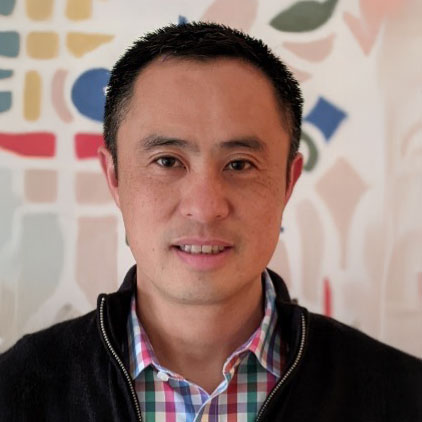
Chris Bi, PhD
Executive Director, Integrative Sciences
Bristol Myers Squibb
Chris Bi is an experienced drug discovery and early development leader with 20+ years of experience and a proven track record of innovative portfolio delivery. He is currently Executive Director of Integrative Sciences at Bristol Myers Squibb. Chris provides strategic input and scientific leadership on external R&D opportunities, builds partnerships, and drives portfolio delivery applying novel technologies and scientific insights, through an ecosystem of biotech and academic partners. Over the past 5 years, he has been integral to creating over 15 collaborations and equity investments for BMS. He has served as a Board Director/Observer on Structural Genomics Consortium, Nitrase Therapeutics, SyntheX Labs, and Elsie Biotechnologies, and on the Advisory Board of Alexandria Seed Capital. Earlier in his career, Chris was a Director at Pfizer, providing oversight on strategic partnerships of Medicine Design to advance Pfizer’s small molecule portfolio through the optimal integration of capabilities and capacities of biotech, CRO, and CDMO partners. Chris obtained his PhD in chemistry from Stanford University and an executive MBA degree from UC San Diego.
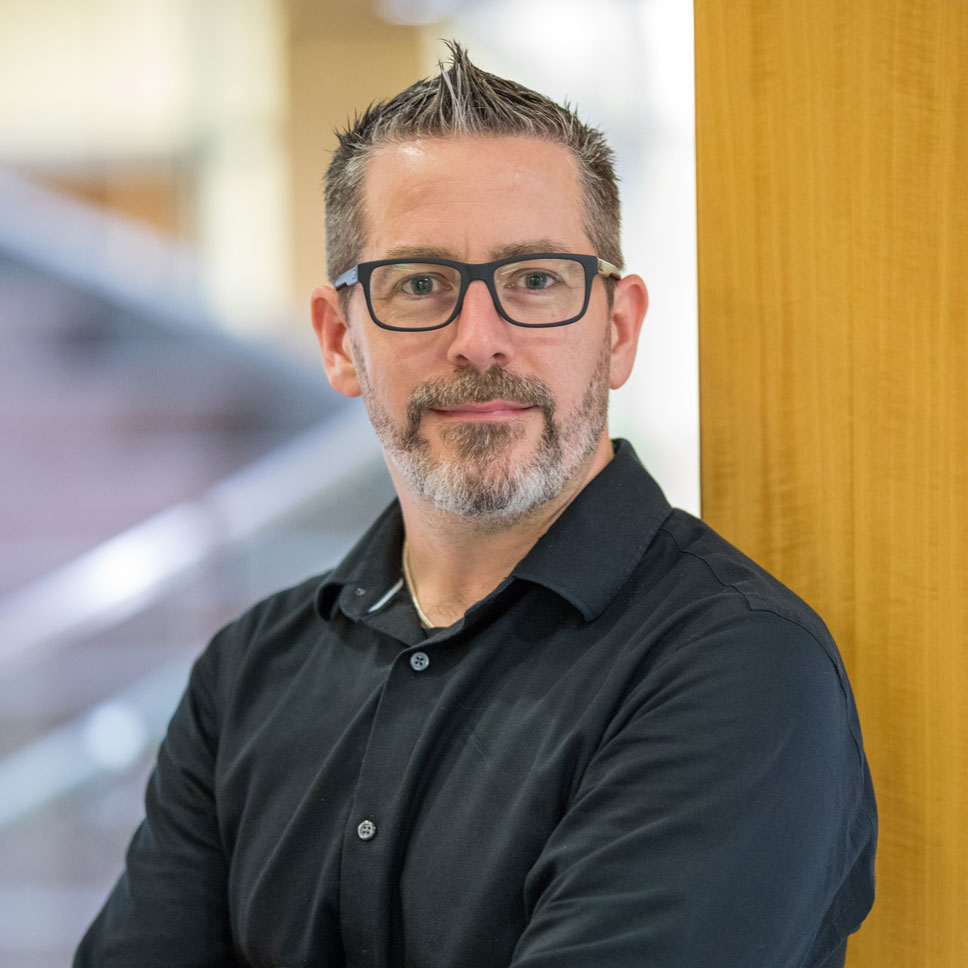
Martin Eastgate, PhD
Vice President, Head, CMC Portfolio Strategy and Integration
Bristol Myers Squibb, Product Development
Martin Eastgate obtained his bachelor’s degree in chemistry from the University of Surrey, UK (1999), graduating with first class honors. He received his doctoral degree in organic chemistry (2002) from the University of Cambridge, UK, followed by postdoctoral research at the University of Illinois Urbana-Champaign. In 2005 Martin joined Bristol Myers Squibb as a process chemist, rising through the organization to lead the process chemistry team (2014-2025). He is currently Head of CMC Portfolio Strategy and Integration, an organization of matrix team leaders responsible for all CMC activities from pre-IND-tox, through to NDA/BLA submission, across the small molecule and biologics portfolios.
In his prior roles Martin led multiple teams through complex scientific and business projects, enhancing organizational performance and value creation, designing commercial approaches to important drug candidates (such as the HIV attachment inhibitor Fostemsavir) and supporting GMP manufacturing activities. In 2014 Martin took on accountability for transitioning BMS small molecule assets from Research into FIH enabling drug supply, supporting over 130 programs through a blended internal-external strategy. Martin led this team to deliver industry leading performance, accelerating the pathway from discovery to clinic while controlling budget and risk tolerance. From 2017 to 2025 Martin was accountable for early-phase drug substance development strategy – including commercial route selection and external development activities – driving functional area business processes, value creation and commercial readiness for the small molecule, bioconjugate and new modality portfolios.
After nearly a decade leading internal and external science, in 2022 Martin became the co-lead of the BMS-Biocon Research Center (BBRC), a research institute on the campus of Syngene Inc. in Bangalore India, where Martin is accountable for the Product Development facing team of >200 scientists supporting the BMS portfolio with annual budget accountability of over $50M USD.
In addition to his internal activities, Martin is an externally recognized scientist. Martin is on the joint research committee (JRC) of the BMS-Scripps collaboration, is a member of the Editorial Advisory Board (EAB) for the ACS journal Organic Process Research and Development (OPRD), the Board of Directors for Organic Reactions, and was on the Scientific Advisory Boards (SAB) of Asymchem Life Sciences Inc. and Elsie Biosciences. Martin has been a Fellow of the Royal Society of Chemistry (FRSC) since 2018.
Martin has co-authored over 100 peer reviewed publications, is a co-inventor on multiple applications and granted patents and has been invited to give more than 100 lectures at conferences and universities world-wide. Martin has been the recipient of several awards including the GlaxoSmithKline Post-Doctoral Fellowship in Organic Chemistry, was selected as a 2011 ACS Young Investigator, was a 2017 McElvain lecturer at the University of Wisconsin, was the inaugural recipient of the Industrial Chemistry Award from the International Society of Heterocyclic Chemistry (2017), received the Organic Industrial Chemistry Award from the Royal Society of Chemistry (2019), the Ondetti & Cushman Award (a scientific honor presented by Bristol Myers Squibb, 2019), is a winner of the EPA Green Chemistry Challenge award (2021), the Industrial Chemistry Award by the Philadelphia Organic Chemists Club (POCC, 2021), and was part of teams that received the Robert Robinson Horizon Award from the Royal Society of Chemistry (2022), the Heroes of Chemistry Award (Fostemsavir, 2023) and an Edison Patent Award (2023).

Monica Fitzgerald, PhD
Executive Director, Development Chemistry
Bristol Myers Squibb
Monica Fitzgerald joined the Chemical Development organization at Bristol Myers Squibb in 2006, following the completion of her bachelor’s degree in chemistry from Rutgers University and a PhD in chemistry from Boston College. In the early stages of her career, Monica made significant contributions to numerous development programs through the successful design, development, and scale-up of synthetic routes and processes for active pharmaceutical ingredients (APIs). She subsequently held roles of increasing responsibility across external partner management, business operations, and project and portfolio management, supporting BMS’s diverse therapeutic modalities, including cell therapy. In 2022, Monica rejoined the Process Chemistry team and currently serves as Executive Director of Development Chemistry. In this role, she leads cross-functional collaborations to develop safe, economical, and sustainable processes that ensure the reliable supply of high-quality active ingredients for the medicines BMS delivers to patients. Monica also oversees academic collaborations and recently transitioned to the Joint Research Committee (JRC) of the BMS-Scripps partnership.
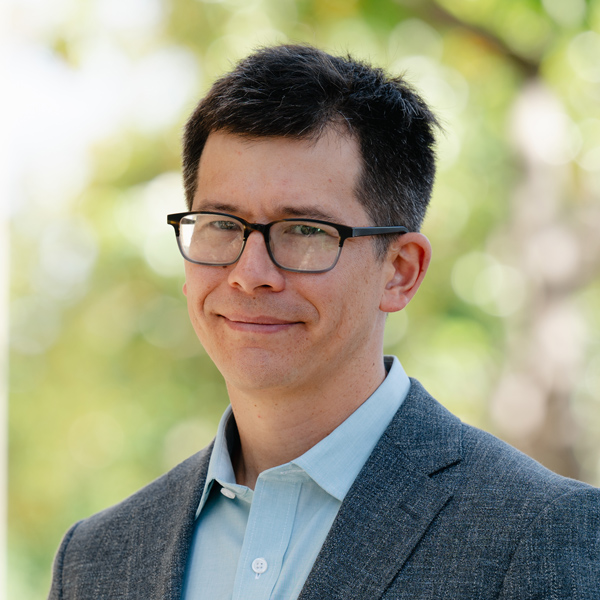
Keary Engle, PhD (moderator)
Dean of Graduate & Postdoctoral Studies
Professor
Department of Chemistry
Scripps Research
Keary Engle is the Dean of Graduate and Postdoctoral Studies at Scripps Research and a professor in the Department of Chemistry. As dean, he oversees the Skaggs Graduate School of Chemical and Biological Sciences, a program consistently ranked among the top 10 in the nation.
Engle’s research focuses on accelerating the synthesis of organic molecules that are used in medicines, biological probes, agrochemicals, and materials building blocks. Many of these molecules are difficult to prepare, requiring several steps to create, costing a substantial amount of time and effort, and generating large quantities of waste. Engle’s lab is developing catalysts that enable efficient, effective and sustainable methods of chemical synthesis to better produce small molecules. Catalysts developed in the Engle lab have been rapidly adopted in academic and industrial labs around the world.
Prior to joining Scripps Research as an assistant professor in 2015, Engle was an NIH Postdoctoral Research Fellow at the California Institute of Technology. He is also a recipient of the 2021 NSF CAREER Award, 2021 Amgen Young Investigator Award, 2020 Eli Lilly Organic Chemistry Award, and 2018 Bristol Myers Squibb Unrestricted Grant, among many other honors. Since joining the institute, Engle has served on more than 90 graduate student advisory committees.
Engle earned his doctorate (PhD) at Scripps Research, doctor of philosophy (DPhil) in biochemistry at the University of Oxford, and his bachelor’s degree in chemistry, economics, mathematics and statistics at University of Michigan.
10:10 - 10:30 AM - Networking break
10:30 - 11:15 AM - Pitch session 1: Neuroscience and beyond
Ryan Shenvi, PhD | Giordano Lippi, PhD | Li Ye, PhD
Learn More + -
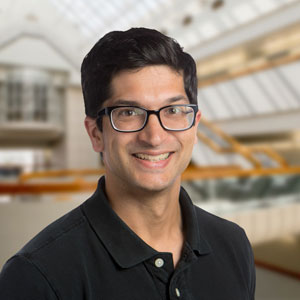
Ryan Shenvi, PhD
Professor
Department of Chemistry
Scripps Research
Ryan Shenvi is a professor in the Chemistry Department at Scripps Research. He serves as Advisory Editor at Angewandte Chemie, as Executive Editor at the Encyclopedia of Reagents for Organic Synthesis, and as an advisory board member at Enveda Biosciences, ACS Central Science and others. His group works at the interface of catalysis, molecular synthesis, computation and functional optimization. The lab is best known for the priori design of potent neuroactive libraries derived from traditional medicine and ritual, the MHAT model for base metal hydride catalysis and the integration of computation with chemical synthesis.
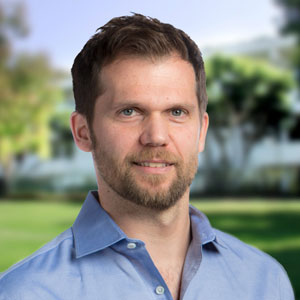
Giordano Lippi, PhD
Associate Professor
Department of Neuroscience
Scripps Research
Giordano Lippi is an Italian neuroscientist and associate professor in the Department of Neuroscience, at the Dorris Neuroscience Center at Scripps Research. Lippi is a world expert in microRNAs, a class of non-coding RNAs, and has devoted most of his career in understanding how microRNAs instruct the assembly of neuronal circuits during brain development.
Lippi received his degree in Medical Biotechnology and PhD in molecular neuroscience from the University of Modena and Reggio Emilia. For his postdoctoral work, he trained with Dr. Darwin Berg at the University of California, San Diego from 2010 to 2017.
The goal of the research in the Lippi lab is to identify the key molecular players that drive the development and function of neural networks. Lippi has been at the forefront of technical innovation in the field of neural development, designing tools for identification, monitoring in vivo, and manipulation of microRNAs in specific cell types. With these tools, Lippi has identified microRNAs that orchestrate critical periods in brain development and that could explain what goes wrong at the onset of several neurodevelopmental disorders, such as epilepsy, autism, and schizophrenia. Recently, the lab has devoted considerable resources to develop high resolution tools to map protein translation in the brain. This effort has been supported since 2022 by a BRAIN initiative grant, a prestigious award part of the 21st Century Cures Act, a $6 billion commitment to cure all neuropsychiatric disorders.
Lippi has won several awards during his career, including a European Molecular Biology Organization Fellowship, a Medical Research Council Career Development Fellowship, and a Whitehall Foundation Junior Faculty Award. Lippi has recently become a Chan Zuckerberg Initiative investigator, a highly competitive award, for his work in understanding the role of microRNAs in aging and neurodegeneration.
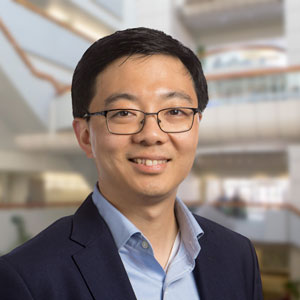
Li Ye, PhD
Professor
Investigator, Howard Hughes Medical Institute
N. Paul Whittier Endowed Chair
Department of Neuroscience
Scripps Research
11:15 AM - 12:00 PM - Fireside chat: Reflections and projections for Calibr-Skaggs Institute for Innovative Medicines
Travis Young, PhD | Isy Goldwasser | Kenneth Krisko, JD
Learn More + -

Travis Young, PhD
Vice President, Biologics
Calibr-Skaggs Institute for Innovative Medicines
Scripps Research
Travis Young is the vice president of biologics at Calibr-Skaggs Institute for Innovative Medicines, a division of Scripps Research focused on the bench to bedside translation of novel medicines. He received a BS in biochemistry from Boston College and a PhD in chemical biology from Scripps Research as an ARCS scholar. After receiving his PhD, he completed a postdoc at Harvard Medical School with an NIH fellowship, in the department of Biological Chemistry and Molecular Pharmacology with Dr. Christopher T. Walsh.
In 2012, Young was a member of the founding group of principal investigators at Calibr-Skaggs and serves as the lead investigator on multiple clinical programs and antibody and cellular therapy-based programs. Young leads a research group focused on the development of novel therapeutics at the interface between protein engineering and cellular synthetic biology. This research spans multiple disease indications including cancer, autoimmune, metabolic disorders, and infectious disease. He also leads the cell therapy efforts at Scripps and has built an experienced team capable of translating unique cell therapies from concept to first-in-human clinical.
His work has been highly awarded and received support from the Wellcome Trust, NIH (National Cancer Institute), Department of Defense, Mesothelioma Research Foundation and American Cancer Society, among others. His work has resulted in numerous publications and patents with >3000 citations in the past 5 years.

Isy Goldwasser
CEO, Calibr Bioventures
Isy Goldwasser is a seasoned executive in the biotechnology and life sciences sectors, currently serving as Chief Executive Officer at OmRx Oncology, Inc. and Calibr BioVentures. Goldwasser's previous roles include Entrepreneur In Residence at Scripps Research, Advisor to CEO at CapsoVision, Inc., and CEO at thync, among other significant positions. Extensive experience includes a leadership tenure at Symyx Technologies, where Goldwasser held roles as CEO, president, and vice president of business development. He has a Master of Science in chemical engineering from Stanford University and a Bachelor of Science in Chemical Engineering from the Massachusetts Institute of Technology.
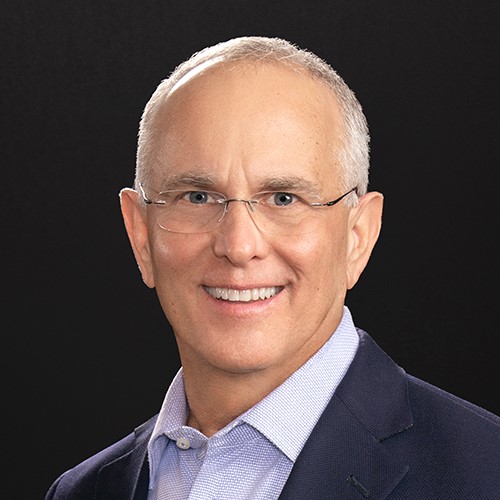
Kenneth Krisko, JD
Partner
Cooley, LLP
Kenneth is the head of Cooley’s life sciences corporate partnering and licensing practice group, and he focuses on the representation of public and private life sciences companies in a broad range of commercial and corporate finance matters. He advises clients regularly with respect to complex commercial transactions designed to maximize the value of pharmaceutical products and technology assets, including technology licenses and acquisitions, research and development collaborations, distribution and manufacturing agreements, and profit-sharing and co-promotion arrangements.
Ken also regularly counsels clients on a wide array of corporate and securities matters, including spin-outs, private financings, mergers and acquisitions, public offerings and corporate governance.
Ken has been a guest speaker on strategic partnering and corporate issues affecting life sciences companies at various conferences. He also is an adjunct professor at the Georgetown University Law Center where he teaches a course on emerging company legal issues and venture capital finance. Prior to attending law school, Ken worked as an engineer for the Department of the Navy.
12:00 - 1:00 PM - Lunch
1:00 - 2:00 PM - Pitch session 2 : Innovations across autoimmunity, cancer, autophagy and metabolism
John Teijaro, PhD | Joe Jardine, PhD | Michael Erb, PhD | Jeffery Kelly, PhD | Dorothee Kern, PhD
Learn More + -
 John Teijaro, PhD
John Teijaro, PhD
Professor
Department of Immunology and Microbiology
Scripps Research
John Teijaro is a professor in the Department of Immunology and Microbiology at Scripps Research.
The focus of the Teijaro Lab is understanding how immune suppressive and pathological environments are generated, maintained and reversed, with a specific focusing on how type 1 interferon (IFN-I, a family of immune-signaling proteins that help fight viruses but can also contribute to harmful inflammation) production and signaling regulates these two states. Using genetic, biochemical and small molecule tools, Teijaro and his team take a global approach to understand how IFN-I and various other cytokines promote both inflammatory and immune suppressive environments.
Teijaro is also the co-founder of Belharra Therapeutics, a next-generation chemoproteomics company developing a pipeline of first-in-class and best-in-class small molecule therapies.
Teijaro received his PhD in microbiology and immunology from the University of Maryland, Baltimore, School of Medicine in 2009.

Joe Jardine, PhD
Assistant Professor
Department of Immunology and Microbiology
Scripps Research
Dr. Joseph Jardine is an assistant professor of immunology and microbiology at Scripps Research. He obtained his BS in biochemistry from the University of Washington and completed his PhD at Scripps Research under the mentorship of William Schief, focusing on rational vaccine design. Following his doctoral studies, Jardine was awarded the HHMI/Helen Hay Whitney postdoctoral fellowship, working with Dennis Burton to analyze vaccine antibody responses and engineer antibodies. In 2017, Jardine moved to Boston to help establish the Institute for Protein Innovation, a nonprofit organization dedicated to advancing protein and antibody engineering. In 2019, he returned to IAVI/Scripps, where he established a research group that integrates immunology and protein engineering.
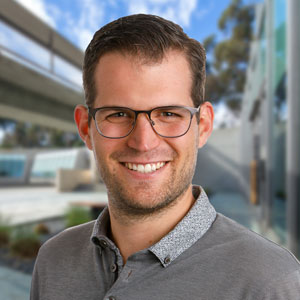
Michael Erb, PhD
Associate Professor
Department of Chemistry
Scripps Research
Michael Erb studies tumorigenic gene regulation to identify new cancer vulnerabilities. The Erb lab develops chemical tools to drug and study such vulnerabilities with the intention of advancing new therapeutic approaches to address human cancers.
After earning his doctorate in chemical biology at Harvard University, Erb launched his own research lab as a Scripps Research Fellow in 2017. He was promoted to assistant professor in the Department of Chemistry in 2020. In 2023, Erb was promoted to Associate Professor, tenure-track, continuing to build on his successful research program.
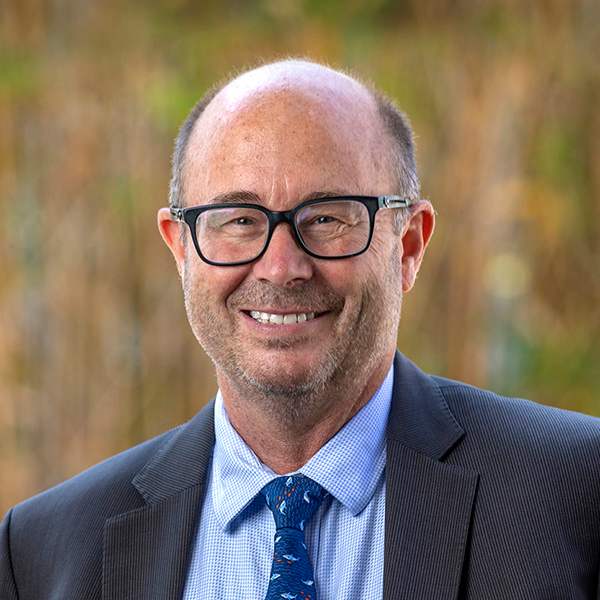
Jeffery Kelly, PhD
Professor
H. Lutcher Brown Endowed Chair of Chemistry
Department of Chemistry
Scripps Research
Jeffery Kelly studies the principles of protein folding and the basis for misfolding or aggregation diseases. Protein misfolding and aggregation can result in deterioration of the heart or brain, such as seen in Alzheimer’s disease. His lab’s insights into the chemistry and biology of protein homeostasis are leading to multiple novel therapeutic strategies to address these conditions. This research has already led to the development of the FDA-approved drug tafamidis, a medicine that slows the progression of the neurodegenerative disease familial amyloid polyneuropathy and the degenerative heart disease transthyretin amyloid (ATTR) cardiomyopathy.
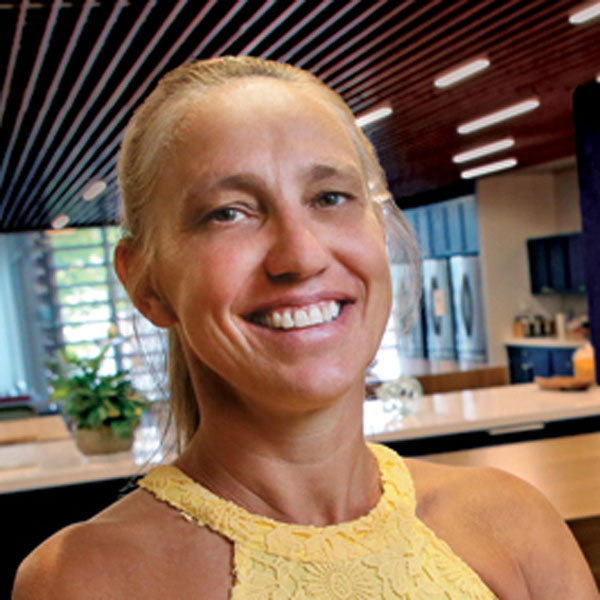
Dorothee Kern, PhD
Professor
Department of Integrative Structural and Computational Biology
Scripps Research
Dorothee Kern is a Professor of biochemistry at the Scripps Research. She has been an investigator of the Howard Hughes Medical Institute since 2005. Dorothee strives to understand how proteins function by understanding how they move in real time at atomic resolution. She uses biophysical analytical methods, such as nuclear magnetic resonance (NMR), x-ray crystallography, fluorescence and computation, to analyze protein dynamics. She has followed the high-speed motion of enzymes during biocatalysis and allosteric regulation, providing unexpected insights into how conformational change are essential for biological reactions. She has expanded the concept of protein motion to the evolution of proteins over billions of years by reconstructing evolutionary trajectories over billions of years in vitro. Dorothee pursues a new vision of protein dynamics and allosteric networks at the heart of improved drug design, is founder of Relay Therapeutics and MOMA Therapeutics with the mission of exploiting protein dynamics for expanding therapeutics to a new level. Recently she has been dveloping AI approaches to predict conformational substates, and to train a novel generative model for predicting protein dynamics.
Dorothee grew up behind the iron curtain in east Germany where she received her BS and MS biochemistry from the Martin Luther University in Halle, where she finished her PhD after the fall of the Berlin wall. Before moving to California for her post-doc at UC Berkeley, Dorothee was captain of the German National Basketball team for many years and won an MVP award. In 1998, she joined the faculty of Brandeis University and transferred her leadership skills from the basketball court to the lab, where she served as professor and the chair of the graduate program in biophysics and biochemistry at Brandeis University for 25 years.
Kern’s insights into protein dynamics and function have been recognized with the election to the American Academy of Arts and Sciences, the German National Academy of Science Leopoldina, the Pfizer Award in Enzyme Chemistry, the Dayhoff and National Lecture Awards from the Biophysical Society and the Eduard Buchner Prize.
2:00 - 2:45 PM - Reverse Pitching: Conversations with investors
What drives their decisions, about partnering with early-stage companies and advice they wish every innovator knew
Angel Martin, PhD | Jeremy Caldwell, PhD | Aiden Aceves, PhD | Darrell Irvine, PhD (moderator)
Learn More + -

Angel Martin, PhD
Senior Associate
Frazier Healthcare Partners
Angel joined Frazier Healthcare Partners in 2021. She is a Senior Associate and focuses on evaluating investment opportunities in the life sciences sector. She contributed to Frazier’s investment in Sonoma Biotherapeutics and is a board observer for Radionetics Oncology and Seraxis.
Prior to joining Frazier, Angel was an Investment Fellow with Vertex Ventures Healthcare. At Vertex, she evaluated early-stage companies pursing transformative therapeutics. In previous roles, Angel served as the Director of Research and Venture Grants at Emerson Collective, Health and as the Research Director of the Friedreich Ataxia (FA) Research Alliance. In these roles, she managed strategic deployment of capital towards emergent therapeutics for oncology and FA, respectively.
Angel received her PhD in pharmacology and cancer biology from Duke University, where she was a Ruth L. Kirschstein Institutional National Research Service Award Fellow of the National Heart, Lung and Blood Institute.
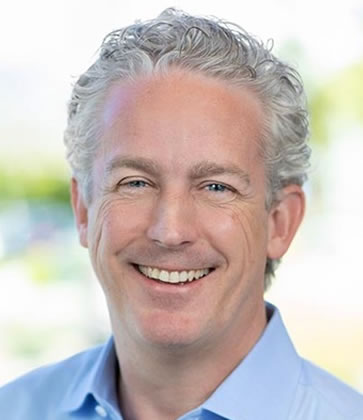
Jeremy Caldwell, PhD
Partner
Red Tree Capital
Dr. Caldwell is a partner at Red Tree Venture Capital. A widely respected executive and scientist with deep industry expertise built through a decorated career of industry and venture activities, Dr. Caldwell’s accomplishments span from creating innovative drug development companies to driving discovery, development and translation of novel therapies. He has forged deep ties to the San Diego and San Francisco Bay Area biotechnology communities, as well as far-reaching relationships within the global pharmaceutical space.
Most recently Dr. Caldwell was CEO of Inception Therapeutics, Versant Ventures’ San Diego-based discovery engine for new company formation, a venture partner with Versant Ventures and a member of the firm’s investment team. In these roles, he co-led in the formation of Chinook Therapeutics (acquired by Novartis for $3.5B), and co-led the investment and formation of Lycia Therapeutics, Belharra Therapeutics, Light Horse Therapeutics, among others, acting as founding CEO and board director of each. Prior to Inception/Versant, Dr. Caldwell was an entrepreneur-in-residence at Third Rock Ventures, where he participated in the genesis and formation of Revolution Medicines (RVMD), Pliant Therapeutics (PLRX), Decibel Therapeutics (DBTX), Relay Therapeutics (RLAY) and Nurix Therapeutics (NRIX). He also played key roles in the foundational science on which Rigel, Inc. (RIGL), and Kalypsys, Inc., were formed, as well as advising in the evolution of Syrrx, Inc. (acquired by Takeda for $270M).
With drug discovery and development expertise primarily focused on oncology, immunology, neurology and cardiometabolic disease, Dr. Caldwell is credited with significant contributions to research leading to four commercial drugs. He previously served as executive vice president and chief scientific officer at Ardelyx, Inc., where he advanced a portfolio of novel anti-fibrotic and cardiorenal therapeutics to the clinic. His career has also included key leadership roles with Sirna, Merck Research Laboratories, and the Genomics Institute of the Novartis Research Foundation (GNF).
Dr. Caldwell currently serves as chairman of Biograph 55 and is a board member at Photinia and Sardona Therapeutics. He received a BA in molecular and cellular biology with an emphasis in neuroscience from the University of California at Berkeley and a PhD in molecular pharmacology from Stanford University.
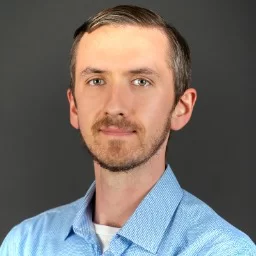
Aiden Aceves, PhD
Vice President, Biotech Investments
Insight Partners
Aiden Aceves is a Vice President on the investments team at Insight. He joined the firm in 2021 to focus on investments in therapeutics and enabling technologies. Aiden was previously an associate at Vida Ventures, where he worked in the firm's LA office making investments in innovative cell and gene therapy companies. Prior to becoming an investor, Aiden worked on founding and operating biotechnology companies in San Diego California, where he is based.
Aiden traces his academic lineage to Caltech, where he earned his doctorate in the lab of Dr. Steven Mayo, a leader in the space of computational protein engineering. Aiden received his BS in synthetic chemistry from the University of California, Riverside.
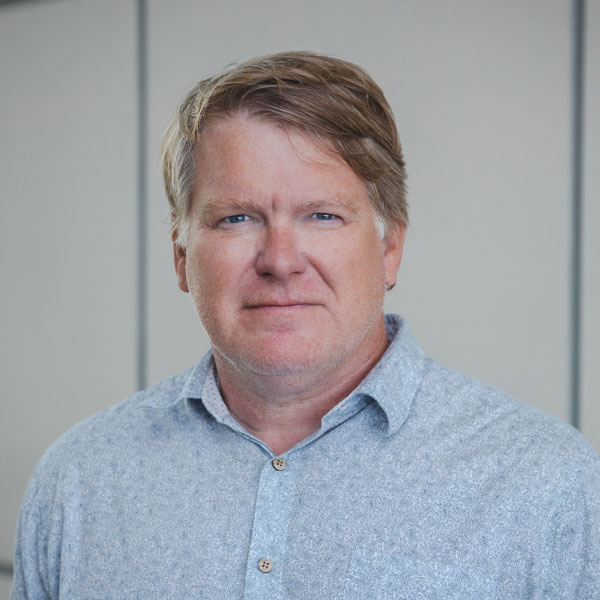
Darrell Irvine, PhD
Professor and Vice-Chair
Department of Immunology & Microbiology
Scripps Research
At Scripps Research, Darrell Irvine aims to collaborate across immunology, chemistry and other areas to engage with translational science opportunities, particularly around infectious disease and cancer. Major efforts of his laboratory at Scripps Research are directed toward vaccine development for HIV and cancer immunotherapy.
Engineering strategies directed toward problems in cellular immunology can lead to treatments for cancer, infectious diseases and autoimmune conditions. The Irvine lab aims to achieve this by integrating principles from immunology with biotechnology and materials chemistry. Specifically, he applies engineering principles to modulate and empower the immune system in the prevention and treatment of human diseases. For example, his lab is developing synthetic materials (smart materials and nanotechnology) to enhance vaccines against infectious disease and cancer, as well as materials that can help improve anti-tumor immune responses.
Irvine, who is a Howard Hughes Medical Institute Investigator, was previously a professor at MIT, where he also received his PhD. He received his undergraduate degree from the University of Pittsburgh.
2:45 - 3:00 PM - Networking break
3:00 - 3:45 PM - Pitch session 3 : Drug discovery and design
Xin Jin, PhD | Marco Mravic, PhD | Stefano Forli, PhD
Learn More + -

Xin Jin, PhD
Associate Professor
Department of Neuroscience
Scripps Research
Xin Jin studies how genes coordinate the formation of brain cells during early life development and how diverse genetic variants can impact this process and ultimately manifest in different brain disorders and developmental disabilities, including age-related disease. She uses cutting-edge gene-editing technology and neuroscience approaches to discover which brain regions and cell types are involved in disease pathology and to define a path for new diagnostic tools and therapeutic interventions.
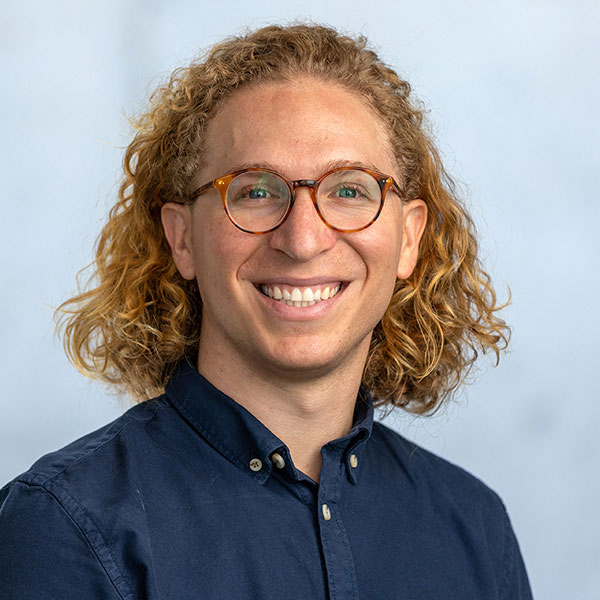
Marco Mravic, PhD
Assistant Professor
Department of Integrative Structural and Computational Biology
Scripps Research
The Mravic lab specializes in computational design, protein chemistry and structural biology to understand membrane proteins, specifically, their molecular mechanism and folding physics. The lab develops software to engineer novel synthetic membrane proteins and lipid-embedding chemical biology tool molecules to targeting natural membrane protein structural and functional states in disease. Mravic earned his doctorate in biophysics from the University of California, San Francisco, became a Scripps Research Fellow in 2020 and was recently promoted to Assistant Professor in 2023.
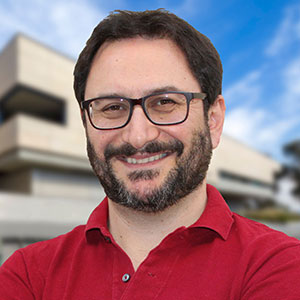
Stefano Forli, PhD
Professor
Department of Integrative Structural and Computational Biology
Scripps Research
Stefano Forli is a professor in the Department of Integrative Structural and Computational Biology at Scripps Research. He has experience in the design and application of computational tools for drug design. His skills combine medicinal chemistry and computational modeling, merging structure-based and ligand based approaches. Over the years, he has successfully designed and applied molecular modeling protocols to drug design for the identification of inhibitors of therapeutically relevant targets like tubulin, cSrc/Abl kinase, COX-1/2, amyloid proteins, HCV and HIV.
He earned his PhD in medicinal chemistry at the Universita' degli Studi di Siena. In 2008 he moved to the Department of Molecular Biology at the Scripps Research as a postdoc in the laboratory of Arthur Olson, and in 2015 he joined the Department of Integrative Structural and Computational Biology as an assistant professor.
His lab develops and maintains the AutoDock Suite, the most widely used and cited software for molecular docking. He is the Director of the Resource for Structure-based Computational Drug Discovery and Design (RSD3), an NIH National Resource for structure-based computational drug discovery and design established at Scripps. The Resource provides access to the drug discovery tools developed in the Forli lab to researchers in both academia and industry, including, but not limited to the AutoDock Suite he develops. He held workshops and courses for researchers in both academy and industry in United States, Europe and Asia. His lab applies computational tools for drug design to combine medicinal chemistry and computational modeling in collaborations with research institutions and centers in US and Europe, with joint projects with ORNL, TACC, UCSD, NIH. He also collaborates extensively with industry leaders such as IBM, NVIDIA and Intel, which supported and contributed to the research in his lab.

